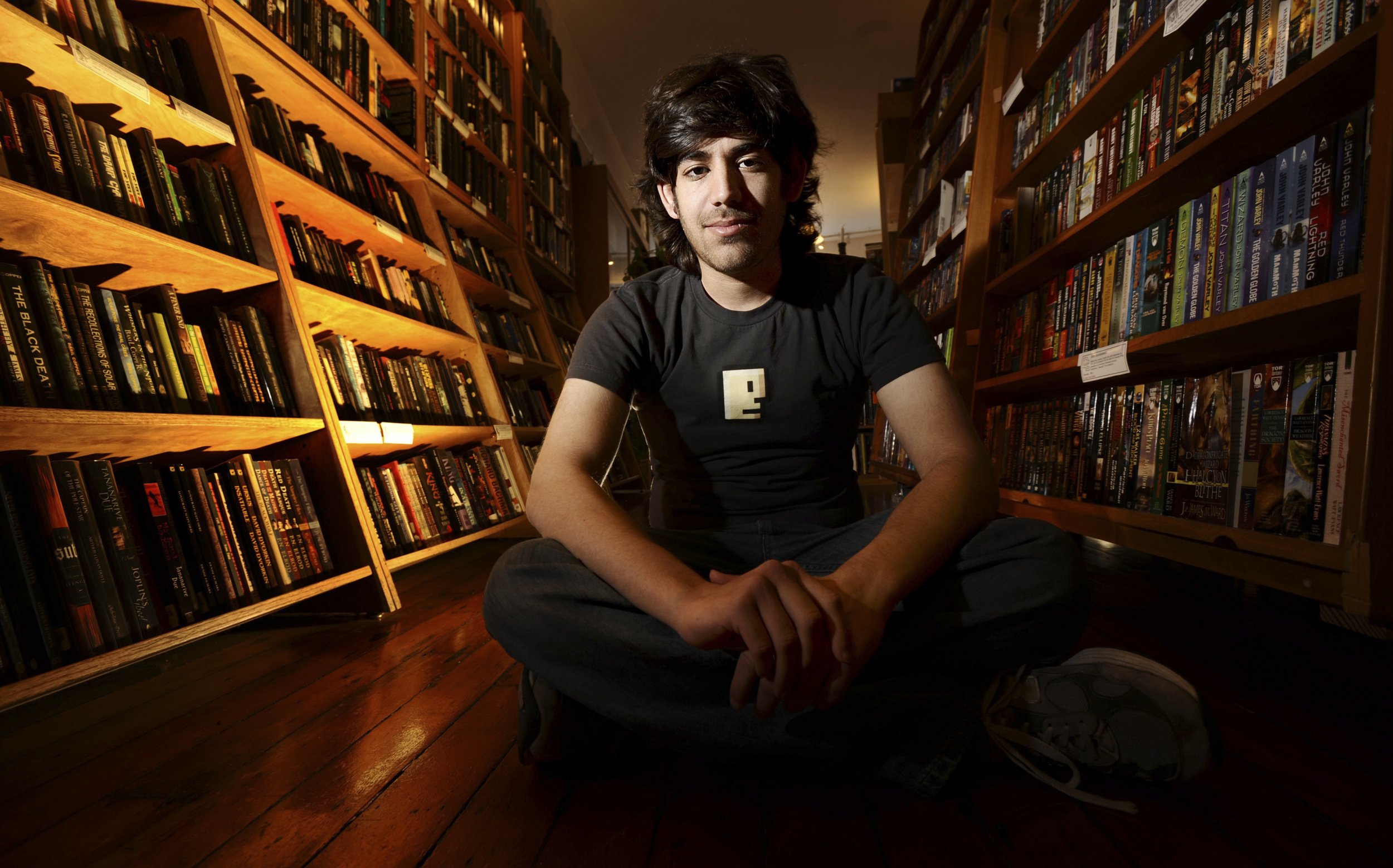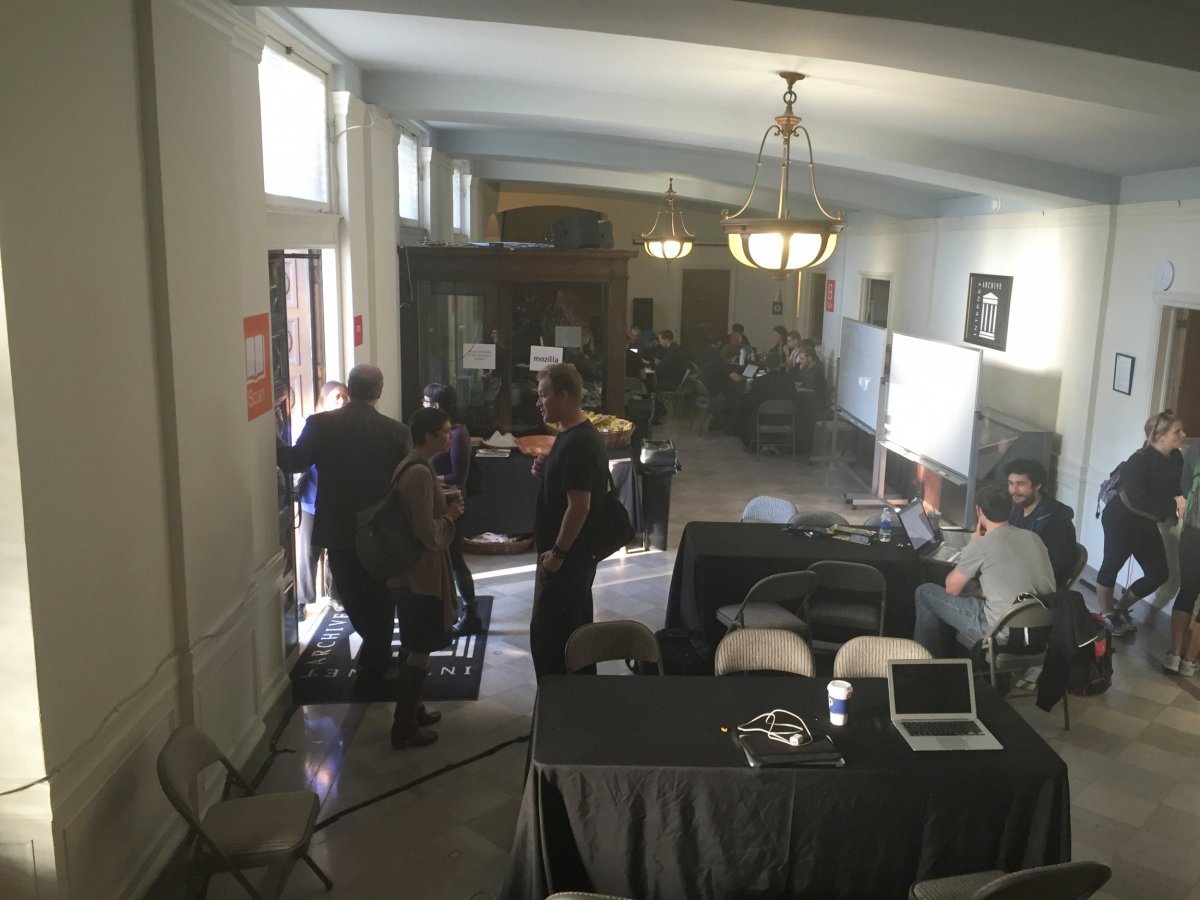
Golden light flooded the room through the tall, stained windows all afternoon last Saturday in San Francisco as the speakers spoke of the benefits of encryption and the evils of third-party trackers. Inside the cavernous amphitheatre of the Internet Archives, a former Christian Science church, the light gave the presentations an aura of elevated importance.
If the 40-odd people who came for the talks were the congregation and the speakers were the pastors, then Aaron Swartz was the martyr that catalyzed this church into being. If Swartz—a prolific computer programmer who helped create Reddit and Creative Commons, and an equally impressive activist for a free Internet—had not committed suicide at his Brooklyn apartment in 2013, he would have celebrated his 29th birthday last Saturday. Instead, the third annual Aaron Swartz Day hackathon was held to mark the occasion.
Prior to his suicide, Swartz was under prosecution by federal investigators following his arrest for bulk downloading academic articles at the Massachusetts Institute of Technology campus. Swartz's family blamed the suicide in part on overzealous prosecutors, and two congressmen questioned whether Swartz's advocacy against the Stop Online Piracy Act played a role in the prosecution. The life and death of Swartz was chronicled in a 2014 documentary titled The Internet's Own Boy.
The suicide sparked his colleagues and supporters to start the annual event to remember Swartz and promote organizations and tools that are carrying on Swartz's mission. Aaron Swartz Day this year was celebrated across the world, from Berlin to Sao Paulo, and was the largest event so far, according to Lisa Rein, its organizer.
Programmers, journalists and whistleblowers flocked to San Francisco to speak during the conference. Representatives from the Tor Project, which advocates for online anonymity, and Glenn Greenwald's project The Intercept were in attendance. In addition, Chelsea Manning, the Army lieutenant who leaked sensitive documents to Wikileaks in 2010, wrote a letter of support to the conference from her prison cell in Fort Leavenworth, Kansas.

The day was more than just a parade of experts talking and guests listening. "Aaron would not have wanted people to mope around about him," says Rein. "He would have wanted us to build new things."
More than 30 computer programmers huddled together around foldable tables in the foyer and typed away at assigned projects. One of these projects was Privacy Badger, a third-party tracker-blocking application built by the Electronic Frontier Foundation (EFF), a digital rights advocacy group. While Privacy Badger helped stop hidden trackers from following one's digital footrpints, the application sometimes disabled images and videos from being displayed, and thus needed some outside help.
"A lot of what we, including Aaron, fight for is the fundamental civil right to the privacy of what we can read," says Cooper Quintin, staff technologist for EFF. "Privacy lets us make mistakes, play all the ideas and grow as individuals."
The programmers were given free food and accommodations by the Internet Archives, allowing them to get comfortable and code until the next morning.
Before becoming the darling of the online activism world, Swartz worked at the Internet Archives for a short time with founder Brewster Kahle. The two met for the first time in 2002, on the steps of the Supreme Court in Washington as Eldred v. Ashcroft, concerning copyright protections of expiring trademark products, was heard.
Along with Harvard professor Lawrence Lessig and Wikipedia founder Jimmy Wales, Kahle and Swartz were the leading voices for a freer, more private Internet. After Swartz died, Kahle offered to host the Aaron Swartz memorial in his church on the northwestern Richmond District neighborhood in San Francisco.
"Aaron led an open source life and took the open source movement to another level," says Kahle. "Programming for the social good is still very much alive. But we, the general public, all screwed up by taking the life of a promising young man."
In the evening, the Internet Archives hosted a dinner banquet during which several speakers, including Kahle and those from the afternoon conference, took turns saying a few words about Swartz. At the close, Manning's letter was read aloud by Rein.
Manning spoke about the "paradox" of technology leaving society more connected and open and yet more paranoid and insecure. She asked the guests to use their technologies for a better, freer and more private Internet, as Swartz would have wanted.
"I now believe that today's coders and engineers have an extra 'hat' that we have to wear on top of the colorful spectrum of hats we already have—namely, the technology ethicist and moralist hat," reads Manning's letter. "Technology is only a toolbox. It's what we create our software for, what we intend to use it for, and who we allow to use it, and how much, that really count."
Uncommon Knowledge
Newsweek is committed to challenging conventional wisdom and finding connections in the search for common ground.
Newsweek is committed to challenging conventional wisdom and finding connections in the search for common ground.
About the writer
Seung Lee is a San Francisco-based staff writer at Newsweek, who focuses on consumer technology. He has previously worked at the ... Read more
To read how Newsweek uses AI as a newsroom tool, Click here.








